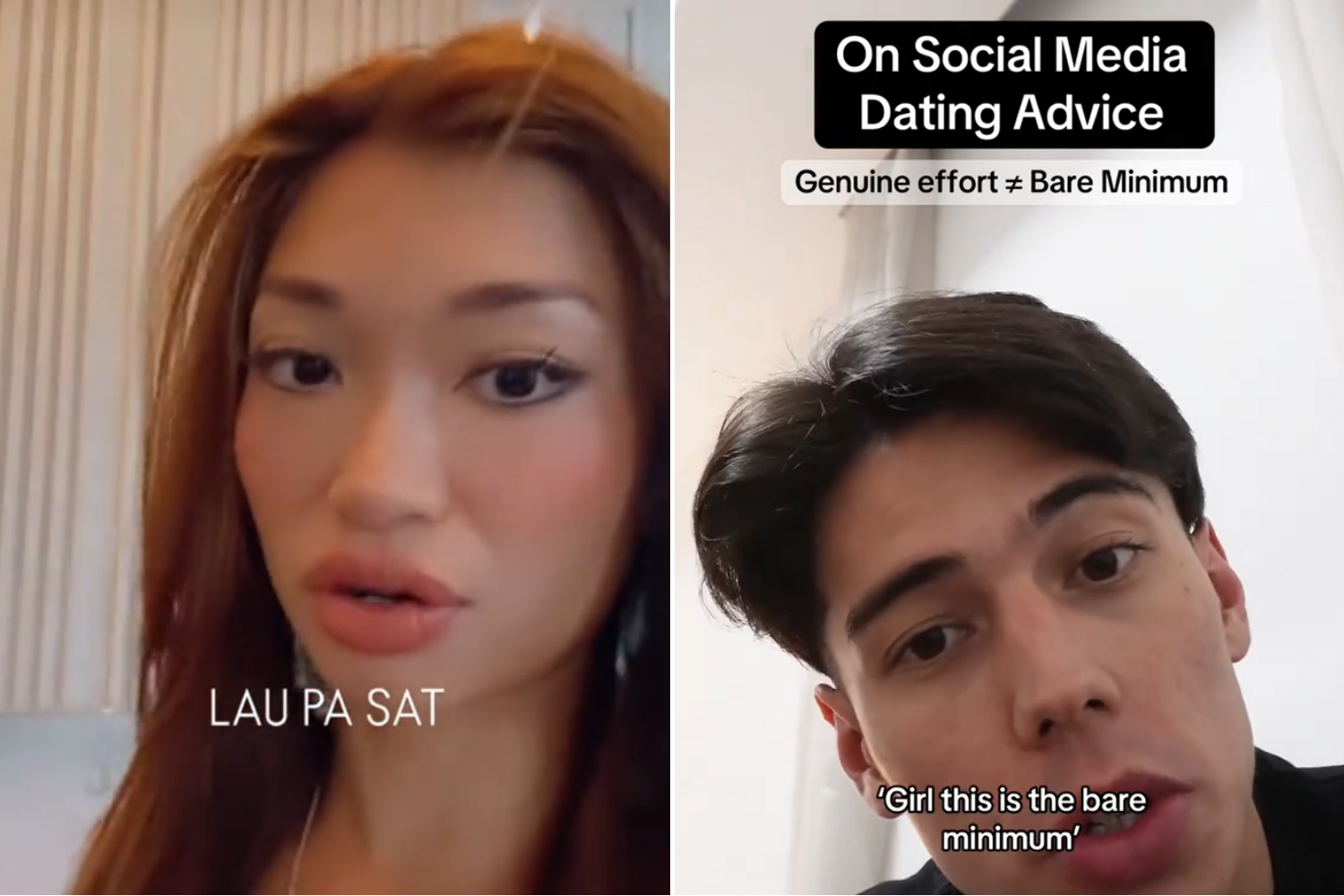‘More transparency, but it puts more pressure on men’: Modern dating and the art of the post-date debrief
By Trixy Toh
Copyright tnp

Whether it’s debating first date venues, splitting the bill, or sharing wholesome/horror dating stories, post-date debriefs – going online to publicly discuss how a date went – have become a fixture of modern dating in Singapore and beyond.
A Sept 2024 global survey by dating platform Bumble found that dating-related content such as Date-With-Me, post-date debriefs, and relationship “tests” have become popular forms of entertainment on social media platforms. The poll surveyed 41,294 Bumble users between the ages of 18 and 35 years in 13 countries, including Singapore.
Two in five singles (41 per cent) celebrate post-date debriefs as more authentic depictions of dating, while 42 per cent of women feel less self-conscious seeing others share their experiences.
But while they foster transparency, interviewees told The New Paper that these trends also place men under greater scrutiny, reshaping expectations and adding pressure to modern romance.
Post-date debriefs create a ‘sense of solidarity’
The latest post-date debrief was centred on whether Lau Pa Sat, an iconic hawker centre, is an acceptable first date venue.
It was started by a Singaporean influencer who goes by the handle Naomi Black (@naomiblackk). In August, she dismissed a man who had invited her to Lau Pa Sat for a first date and her Instagram Stories to her 39,000 followers quickly went viral.
Naomi, who said she is aged in her “late 20s to 30” and declined to give her full name, told TNP that she never set out to be an influencer. She works in sales and business development and treats social media as a side hobby.
It was not her first time sharing a dating story online, but she said she did not expect the Lau Pa Sat debate to “blow up”. What began as “entertainment” soon turned into a space for “conversations about self-worth and boundaries”.
According to Naomi, post-date debriefs have encouraged more women to share their dating experiences openly online, creating a “sense of solidarity” and making clear that women are allowed to have their own standards and to voice them without shame.
Still, she acknowledged the risk of being painted as “demanding” or “arrogant”, while men’s stories are often seen as “funny or entertaining”.
“That double standard is exactly why it’s important for women to keep speaking up,” Naomi said, adding that “raising your standards is not arrogance, it’s self-respect.”
Sharing dating stories online is a form of ‘courage’
The ripple effect of such content, as Naomi termed it, seems to particularly impact young, single women such as Priscilla Lim, who is in her early 20s. She works in the media industry and dates occasionally.
She told TNP that she enjoys post-date debriefs as they give her insight into how other women think, and the different standards they set for themselves.
Advice from women who are in long-term relationships has also influenced how Ms Lim approaches relationships, helping her understand how men think and the “consequences of overlooking specific things”.
“It also helped me reflect on some of my own mannerisms and how to potentially be a better partner,” she said.
While Ms Lim agrees that such trends help women to “know their worth”, she cautioned that it is important to be “discerning” in selecting whether to apply the content they see online to their personal lifestyles.
She admires women who share their experiences openly and sees it as a form of courage. “I respect them trying to look out for and help the other girls out there to have higher standards and be more discerning.”
‘More transparency, but puts more pressure on men’
However, the men that TNP spoke to say that sharing and consuming dating stories so openly feels like oversharing.
Daniel Ng, an office worker in his mid-20s, has gone on many dates arranged through apps. While he welcomes transparency, Mr Ng feels some posts come across as “male-bashing”. As a result, it puts more pressure on men and makes him “less enthused” about dating.
Social media executive Gabriel Lee, 32, echoed this sentiment, noting that preferences online can be irrelevant since what appeals to one woman may not to another.
Knowing these preferences, Mr Lee added, “doesn’t mean men ought to give in” as they should also stay true to themselves instead of putting up a front to meet expectations.
Both felt men are judged more harshly by society, with Mr Lee adding: “Even without such date reviews, men are already expected to plan and take the initiative for dates. What’s there to analyse and judge women on if there are no expectations of them in the first place?”
Neither would call out a bad date online, preferring to share only with close friends. Mr Lee noted it may also reflect social norms where men are often expected to “suck it up” when things go badly.
Such trends may create ‘unrealistic expectations’
Beyond debriefs, relationship “tests” like the “bare minimum” or “princess treatment” trend have also been making waves online.
These videos typically feature a couple, with the woman posing rapid-fire questions like, “should the guy always carry the woman’s bags?” The man then answers, indicating whether it counts as the bare minimum or princess treatment.
In one video, TikToker @sgproverbs argued that genuine effort should not be mistaken for the bare minimum.
Speaking to TNP, the TikToker who only wanted to be known as David and has over 5,500 followers, believes these videos can set unrealistic expectations for younger audiences.
The 30-year-old, who works in tech sales and creates content about “random Singapore things” as a hobby, noted that he often gets “emotional reactions” in the comments when he posts about dating topics, particularly from women judging him for viewing these trends from a male perspective rather than their own.
Currently attached, David said dating videos with lavish gestures like gifts and hotel stays are often curated. “They are nice, but shouldn’t be mistaken as the standard for dating.”
Friends have told him that such trends leave them feeling “inferior” or “lesser” if they cannot afford a certain lifestyle, adding that men often feel they have to work “extra hard to feel valued”, while girls are told to just “sit still and look pretty”.
While he agreed that men should “take the lead”, he stressed that it should be “within their means” – through planning dates, showing genuine interest, and simple gestures like carrying the woman’s bag.
And while it is fine for men to put in more effort at the start, “sooner or later, those actions have to be reciprocated by the girl,” he said. “Self-respect is non-negotiable.”
‘Dating is full of double standards’: Lunch Actually CEO
Violet Lim, chief executive of Singapore matchmaking company Lunch Actually, said of post-date debriefs: “Are we venting, or are we learning?”
Ms Lim, 45, who started the company in 2004 with her now-husband Jamie, believes such trends have made men more mindful of how they present themselves on dates – raising standards of “respect and thoughtfulness” – but can also create anxiety if men only see the negativity in these posts.
While sharing dating experiences online encourages clearer boundaries and higher standards, Ms Lim said it risks tipping into over-criticism when women dismiss someone too quickly or bring a “defensive mindset” into every date.
“Awareness is power, but hyper-vigilance can also make you too judgmental and miss out on good people,” said Ms Lim, who noted that modern women’s expectations have shifted as they value “little signs of respect and intentionality” such as thoughtful venues, good manners, and being fully present.
Still, she added, dating remains “full of double standards”.
Women who share online may be praised as brave yet criticised as “too negative”. Meanwhile, men featured in such stories often face harsher backlash or risk being seen as “bitter”.
“Likewise, men are still often expected to plan and pay, while women don’t face as much judgment if they don’t,” she said.
Compared to when dating was largely treated as private, she believes social media is now collectively shaping what is seen as normal.
Her advice: Women should share in a way that “uplifts, not just vents”, while men should focus on being respectful and genuine.
“Social media is a highlight reel – your love life isn’t a performance, it’s about making connections with the right one,” said Ms Lim.



